
Chapman ecosystem ecology lab
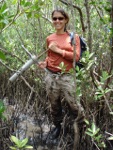
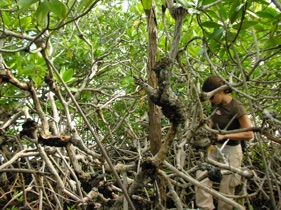



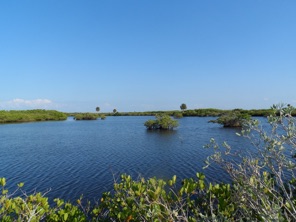
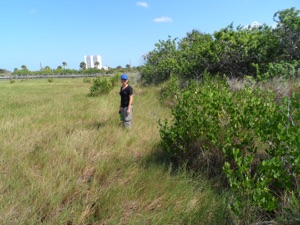

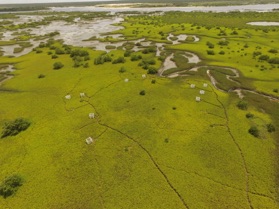

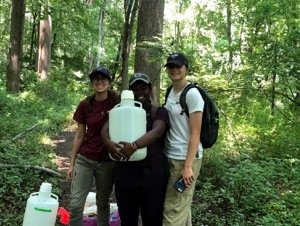
Research Overview
My research occurs at the intersection of ecosystem processes and the biotic factors which influence them. In a broad sense, I investigate how plant, herbivore, and microbial communities interact and regulate carbon and nutrient cycling. My research is not ecosystem or organism dependent, but rather, I pursue mechanistic questions and examine the most useful ecosystems to answer them. I am convinced that mechanistic explanations for ecological patterns lead to more appropriate generalizations and consequently, strides towards cross-ecosystem theory that can better inform ecosystem management and stakeholders. Below are some of the projects our lab group is currently pursuing. If you are interested in joining the lab, email me.
Projects
Global change in mangrove-marsh coastal ecosystems- #wetfeetproject
We are currently performing multiple projects in neo-tropical mangrove ecosystems. In a new NSF-funded project (#wetfeetproject) we are investigating how mangrove encroachment and warming influence belowground processes in coastal wetlands. In this collaborative project, we are working with Jim Morris, Mark Hester, Candy Feller, and Nikki Dix to determine how changing soil dynamics can influence wetland elevation and resilience to future sea level rise. In a related NASA-funded project, in collaboration with Candy Feller, Adam Langley and Wayne Walker, we are investigating how changing coastal vegetation communities alter carbon cycling and ecosystem productivity. The goals of this project include advising NASA on adaptation to climate change at the Kennedy Space Center. We are also using ecosystem valuation approaches to assess how mangrove encroachment into marshes alters the coastal protection these wetlands provide. In order to better understand the factors controlling coastal wetland organic matter dynamics, we are working with Ember Morrissey to examine how mangrove encroachment influences soil microbial community structure and function.
Phragmites warming in Chinese coastal ecosystems - The CROWN Project
In collaboration with Siyuan Ye from the Chinese Geological Survey and Ken Krauss and Honqing Wang from the USGS Wetland and Aquatic Research Center, we are starting a new project to examine how Phragmites wetlands respond to climate warming. Similar to the above-described NSF project, we will deploy warming experiments along a latitudinal gradient of sites and with the CGS team examine how plant and soil processes change due to warming.
Interactions of native and non-native plant diversity with nitrogen availability and warming
We are interested in how soil nitrogen and carbon availability prevent or facilitate non-native plant invasion. In particular, at Ridley Creek State Park we are examining how different forms of nitrogen fertilizer impact both native and non-native plant species abundance and richness in Pennsylvania forest understory communities. We are also performing carbon additions to determine how lower N availability temporarily impacts the forest understory community. Thus far, we have found that though these forests are nitrogen saturated, the plant communities are resilient to future nutrient alterations. We have ongoing passive warming experiments to examine how future climatic conditions will alter these invaded forest ecosystems.
Microbial degradation of oil
In an NSF RAPID project, we collaborated with Helen White to examine how microbial decomposition of oil occurs in the presence of various marsh plant species and under different levels of nitrogen. Using stable isotopes, we can partition oil respiration from plant root respiration.
Insect herbivory can drive ecosystem processes
It is well documented that herbivores can consume up to 20% of net primary productivity in ecosystems. Herbivore impacts on other ecosystem functions such as nitrogen and carbon cycling are a topic of interest to us. With John Hom and Ken Clark of the Forest Service, we are examining how insect defoliation interacts with fire to regulate nitrogen cycling in the Silas Little Experimental Forest. With colleagues Aimee Classen, George Koch, Steve Hart and Tom Whitham we have used long-term herbivore removal experiments, to demonstrate that chronic herbivory can impact litter decomposition, litter production, nutrient cycling and soil development in Southwestern pinyon-juniper woodlands.